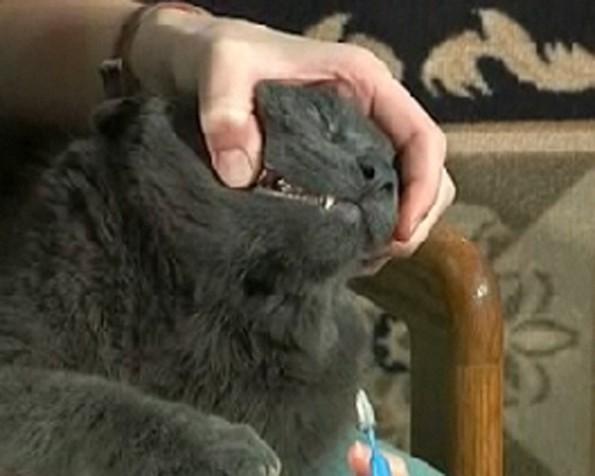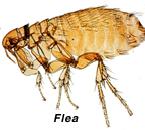Zoonoses: animal diseases that can be transmitted to people
Is zoonoses the sinister side of pet ownership? There are countless diseases that humans can contract from their pets and here is a list of some of the more important ones.
Cat scratch fever
When a cat’s dagger-like canine tooth punctures another cat’s skin, it pushes bacteria deep into the bite. The bad news? The same thing can happen to people. If you are bitten by a cat, you are at risk for a serious bacterial infection, even if the cat outwardly seems healthy. We recommend flushing the site with soap and water and seeing your physician as soon as possible. In some cases, cat scratches can also transmit bacteria such as Bartonella. Immunocompromised individuals in particular should seek medical attention promptly if bitten or scratched by a cat.
Fleas
A single flea can hitch a ride into your house on your cat or dog and lay enough eggs in your home to create an infestation. Adult fleas feed on mammals numerous times a day and when they bite, they create itchy swollen spots. They can get their blood meal from your pet or from people. Unfortunately, some fleas carry viruses or other diseases that can make humans sick. Flea prevention is the key to protecting your household. Check out our blog article on fleas.
Giardia (also known as Beaver Fever)
Giardia is a microscopic parasite transmitted by ingestion of a giardia cyst in contaminated water, as well as in an infected pet’s feces. It can cause severe watery or bloody diarrhea in dogs and cats. Some pets may show no symptoms but carry this parasite and spread it via their excrement. Puppies and kittens in particular have an immature immune system and are more prone to giardia infection.
Roundworm and hookworm
Roundworm and hookworm infections occur commonly in pets – especially in puppies and kittens. The eggs from these parasites are passed in animals’ stool and hatch into larvae in the soil. People are at risk of ingesting infective eggs from contaminated environments, or in the case of hookworm, from touching contaminated soil with bare hands or feet. For more detailed information, check out the Center for Disease Control and Prevention website on hookworm: http://www.cdc.gov/parasites/zoonotichookworm/gen_info/faqs.html and our roundworm blog article.
Rabies
Rabies is a nasty virus that is transmitted from wild or domestic animals through contact with saliva. Once the symptoms of rabies develop, it is nearly always fatal. This disease is preventable through vaccination of cats and dogs, as well as wildlife. Routine vaccination of our cats and dogs protects the public; in time we hope that this virus can be eradicated. Please see our previous blog article on Rabies virus.
Leptospirosis
Leptospirosis is a bacterial infection that can be transmitted to people primarily through wildlife/rodents or dogs’ urine and saliva. For example, if your dog is not vaccinated against this infectious bacterium, it could become sick with it through contact with raccoons and then make its people sick. Illness in people can range from flu-like symptoms to meningitis and liver failure. Please see our previous blog article on Leptospirosis bacteria and the Centers for Disease Control and Prevention website: http://www.cdc.gov/leptospirosis/.
Salmonella
According to the Public Health Agency of Canada, Salmonella is a bacterium that is often found in the intestines of animals. It can be transmitted to people when they eat food contaminated with animal feces or through contact with infected animals: including livestock, cats and dogs, pocket pets (such as rodents), amphibians, birds and reptiles. Pet foods also have the potential to be contaminated with Salmonella bacteria – for this reason, it is a good idea to wash your hands after touching animals or their food. Symptoms of Salmonella include vomiting and diarrhea.
The take-home message is that routinely vaccinating and deworming our pets dramatically reduces the risk of humans being exposed to viruses, bacteria and parasites transmitted by animals. Restrict your dog’s and cat’s access to wildlife and standing water outside. Use good hygiene practices when handling a pet’s fecal matter to protect yourself and pick up feces regularly to protect others. Testing a puppy or kitten’s fresh stool sample can detect giardia, roundworm and hookworm eggs. Protect yourself against food poisoning with these tips: http://www.phac-aspc.gc.ca/fs-sa/fst-csa-eng.php. Do not put yourself in danger of being bitten or scratched at any time. If you are bitten or scratched and it breaks the skin, it is important to inform your physician.
If you have any questions please give our team at Mitchell Veterinary Services a call.


